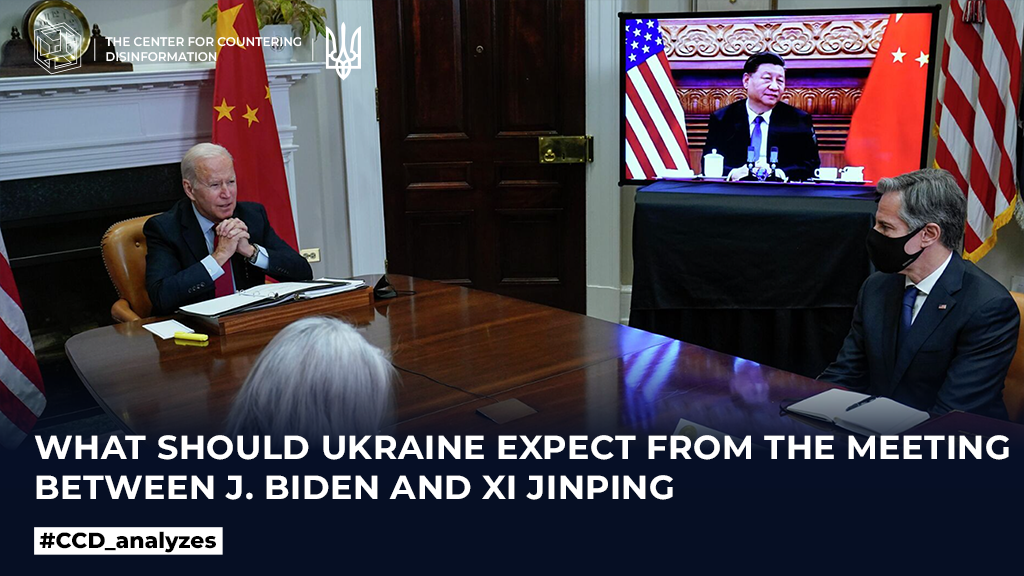Obviously, the main international event of the month will be the talks between the US and Chinese presidents scheduled for November 15. The meeting will take place in San Francisco on the sidelines of the Asia-Pacific Economic Cooperation (APEC) Leaders’ Summit.
Expectations are high for this meeting, as it will be the first face-to-face contact between the leaders of the two countries in about a year (the last time Biden and Xi met was in November 2022 at the G20 summit in Indonesia). Negotiations at this level could have a significant impact not only on the state of international relations between the US and China, but also on the situation surrounding the war between Russia and Ukraine.
What political consequences can be expected from this meeting?
First, we should not expect any major breakthroughs that could dramatically improve bilateral relations, because the contradictions between the two countries are too deep and relations are in their worst state in 40 years. In particular, the scandalous visit of the former Speaker of the House of Representatives N. Pelosi to Taiwan in August 2022 and the appearance of Chinese spy balloons over the United States in February this year have contributed to this.
According to White House officials, one of the main goals of the summit is to reduce the likelihood of US-China tensions escalating into an armed conflict. Therefore, the main focus will be on topics directly related to US-China bilateral relationship – the status of Taiwan, contradictions in trade, financial and economic relations, cybersecurity, and the crisis in the Middle East. A separate issue will be reducing the flow of fentanyl, a synthetic drug that Chinese chemical companies are accused of spreading in the United States. The meeting will thus mark the beginning of a political dialogue between the two countries that will develop at other levels, including diplomatic. As for Taiwan, we should not expect any clear agreements and deals. Biden is expected to reaffirm his adherence to the “one China” policy, but only if Xi Jinping refuses to interfere in Taiwan’s elections.
Second, issues related to the war between russia and Ukraine are likely to be discussed, but they will not be a priority. The meeting with Xi will take place at a rather difficult time for Biden, when the US Congress is in a standoff over the continuation of aid to Ukraine, an issue that has been repeatedly voiced by his administration as a priority. Therefore, the parties are unlikely to be able to overcome fundamental differences in assessing the causes of the war between russia and Ukraine and the conditions for ending it.
In geopolitical terms, the Chinese leader perceives the war in Ukraine through the prism of his economic and ideological confrontation with the United States, where Ukraine’s victory is perceived as a victory for the United States. Accordingly, any serious concession on geopolitical issues will be seen in Beijing as a manifestation of US weakness, which is extremely undesirable for the Biden administration in view of the presidential campaign in 2024.
Beijing does not hide the fact that in its foreign policy, China follows its own interests and russia is its most important trading partner, a source of cheap gas, oil, wood and minerals (by the end of the year, trade between China and russia may exceed $200 billion). It is therefore unlikely that China will reduce its active trade with russia and refuse to help it evade Western sanctions.
On the other hand, the Ukraine-russia war has created logistical problems for China in international trade, which have intensified due to the war in the Middle East. Therefore, Beijing does not benefit from excessive prolongation of the war, and even more from its escalation Moreover, the subject of the negotiations will certainly be the conditions for lifting US restrictions on the supply of a number of strategic goods and technologies, including the lifting of US sanctions against Chinese companies that help russia evade the Western sanctions regime. Therefore, there is every reason to hope that in exchange for the lifting of anti-Chinese sanctions, Beijing will agree not to publicly support russia’s war against Ukraine, refrain from direct military assistance to russia and advocate peace in Ukraine in the format of a simple cessation of hostilities (the “Chinese peace plan”). After all, Xi Jinping has no interest in lowering J. Biden’s ratings and returning his predecessor to power. It should be remembered, however, that the covert supply of arms and ammunition to russia via “third countries” may continue.
So while Joe Biden’s upcoming meeting with Xi Jinping is unlikely to end russia’s war against Ukraine, nor will it bring us a just peace, but Ukraine is interested in its positive outcome. The very fact of this meeting and the continuation of the constructive negotiation process between the United States and China is positive, as it largely eliminates the threat of further military and political confrontation between the countries, which would be beneficial to russia.










